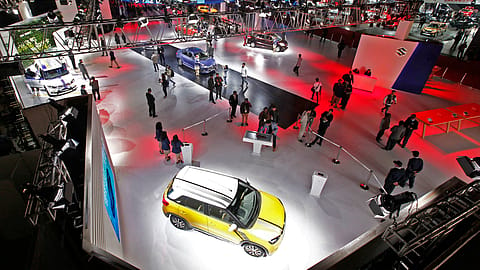Auto sales drop 14% in January: SIAM
No revival in sight; barring three-wheelers, all the other segments showed de-growth.

January, the first month of the new year, was no different for the ailing Indian auto industry. Even after months of a slowdown, there is no sign of revival. According to the latest data by the Society of Indian Automobile Manufacturers (SIAM), total auto sales fell 13.83% to 1,739,975 units in January from 2,019,253 units a year ago.
“Sales of vehicles continue to be stressed due to the rising cost of vehicle ownership and slower growth in the gross domestic product (GDP). We are hopeful that the recent government announcements on infrastructure and the rural economy would support the growth of vehicle sales going forward, especially in the commercial vehicles and the two-wheeler segment,” Rajan Wadhera, president of SIAM, said.
Wadhera is hopeful that the ongoing Auto Expo will help build positive consumer sentiment and improve sales in the coming months.
Barring three-wheelers, all other segments showed de-growth. Sales in the passenger vehicles segment fell 6.20% to 262,714 units last month, while that of commercial vehicles fell 14.04% over a year.
Wholesales of the country’s largest automaker Maruti Suzuki India grew 0.29% to 139,844 units, while Hyundai Motor India’s sales fell 8.30% to 42,002 units in January. Honda Cars India, with a drop of 70.98% over a year, became one of the worst-performing carmakers in the segment.
The two-wheeler segment reported a drop of 16.06% to 1,341,005 units in January 2020 from 1,597,528 units a year ago. However, three-wheelers grew by 12.69%.
In the two-wheeler category, sales of Mahindra fell by 82.71%, while that of the market leader Hero MotoCorp dropped 14.37%.
Recommended Stories
Vehicle production also suffered due to the slowdown and fell by 10.57% while exports grew by 15.02%.
The ongoing slowdown in the industry has been due to a host of reasons: the increasing cost of ownership, fuel price volatility, the transition to stricter Bharat Stage VI emission norms, uncertainty over electric vehicles, and rising insurance costs over the last year.
“We are looking forward to the early announcement of an incentive-based scrappage policy in the context of the recent assurances of the government,” Wadhera said.